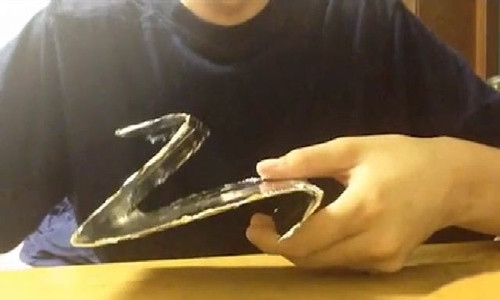Tips to improve Wifi at a cost hundreds of times cheaper than antennas
Scientists reveal a simple trick to improve Wifi signals, increase network security, at a cost hundreds of times cheaper than antennas.
 |
| How to use aluminum foil to improve wifi signal in home. |
A research team at Dartmouth College and Columbia University, USA, developed a low-cost technique that allows the creation of a virtual wall to help improve Wifi signals in houses with many rooms, Science Alert reported yesterday.
The new technique relies on a 3D-printed reflector wrapped in foil, which directs the signal toward specific areas and away from unwanted areas. The device works best with 3D-printed material because it can capture the signal precisely and maintain the optimal shape for the required coverage. But the team says anyone could create a similar structure using cardboard.
According to researchers, directing Wi-Fi signals to areas where they are most needed can reduce disruption and interference from building materials, while improving the system's ability to protect against cyber attacks.
The team designed an algorithm to optimize the shape of the reflector to reach more coverage areas. They simulated the signal's coverage and how it interacts with objects in the environment.
The team says their algorithm can find the best shape in just 23 minutes, using information about the space, access points, and target area. After printing out the plastic structure, they cover it with a foil-thin layer of reflective metal.
For those without a 3D printer, the researchers recommend using cardboard. “Cardboard would be a reasonable alternative to 3D printing material, but it would be difficult to bend the cardboard as desired, and it might not hold its shape,” said Justin Chan, a member of the research team.
In the study, the team tested the method on existing Wi-Fi access points and found that coverage increased significantly. “For about $35, we can create a custom wireless reflector that outperforms antennas that cost thousands of dollars,” said Xia Zhou, an associate professor of computer science at Dartmouth College.
According to VNE
| RELATED NEWS |
|---|

